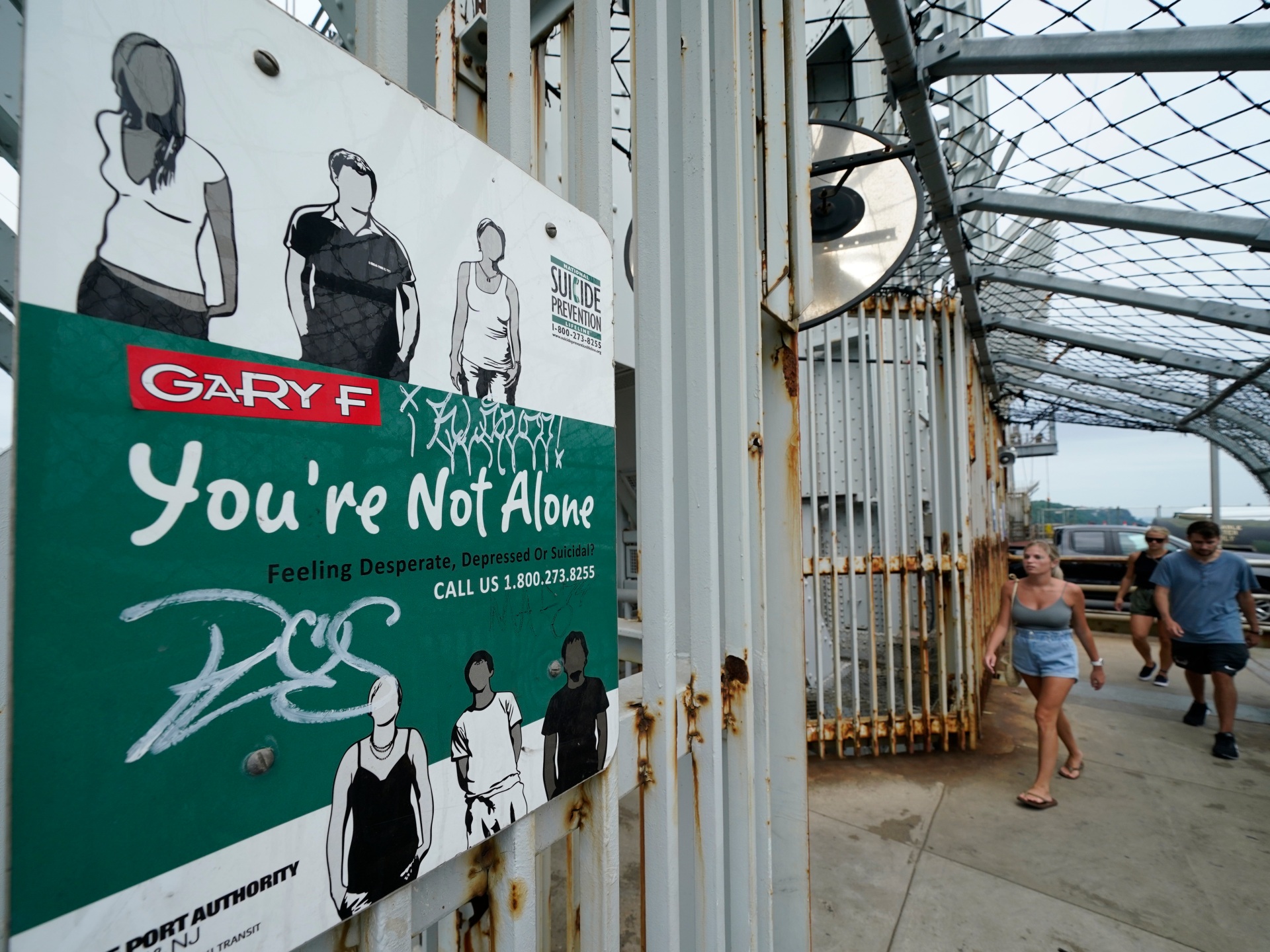More than 700,000 people die by suicide every year. Many more attempt suicide but survive. The theme of this World Mental Health Day, on October 10, is to make mental health and wellbeing for all a global priority.
As part of achieving that ambition, we must give people the support they need so they do not reach a place where suicide seems the only way out.
And yet, many countries make providing that support more difficult by criminalising suicide.
There are still at least 20 countries worldwide where suicidal behaviour is a criminal offence, carrying a maximum penalty of up to three years in prison. Rather than being offered the support they need, survivors of suicide in these countries, often people with a pre-existing mental health condition, are either arrested or subjected to extortion along with their family members. Health workers and police officers often take advantage of the law and the suicide survivor’s vulnerable condition.
The law also finds ways to punish the deceased posthumously, as well as their families. Bangladesh, Kenya and the Bahamas, for instance, have provisions in place to invalidate the wills of those who have died by suicide, creating barriers in matters of succession and inheritance.
A law that criminalises suicide only serves to exacerbate the existing stigma and discrimination against people with mental health conditions. People who attempt suicide are treated as criminals, potentially receiving a permanent criminal record, robbing them of opportunities in work and life they vitally need.
Criminalising suicide also makes it very difficult for people to talk to those around them and seek help out of fear of incriminating themselves and others. Criminalisation leads to an under-reporting of incidences of suicide and suicide attempts, resulting in an inaccurate picture of the scale of the problem and less urgency in devoting resources needed to deal with the challenge.
This is why the report of the Lancet Commission on Ending Stigma and Discrimination in Mental Health is so important. Launched on World Mental Health Day, its recommendations include the decriminalisation of suicide to de-stigmatise mental health conditions and align legislation with human rights.
Why countries criminalise suicide
Why, then, do these laws still exist? In some countries, they are a lingering legacy bequeathed by British colonialism, dating back more than a century. These laws have never been repealed, despite the United Kingdom itself having done so in 1961. This brings into question the argument put forward by countries such as Nigeria, Malaysia and others that the laws are a reflection of current cultural or religious beliefs.
Another common argument made in support of these laws is that they deter suicide attempts. However, there is little evidence to support this assertion. In fact, the World Health Organization (WHO) takes the opposite view. It proposes decriminalisation as a means of reducing suicide rates in its Comprehensive Mental Health Action Plan, 2013-30, a roadmap endorsed by all WHO member states. In the absence of strong evidence, the logic of attempting to deter someone willing to take their own life with the threat of imprisonment does not stand up to much scrutiny.
Signs of change
Thankfully, we are starting to see progress. In recent years, countries such as the Cayman Islands, Cyprus, India and Singapore have all either repealed or updated legislation to stop criminalising suicide. In Pakistan, the Senate — the upper house of parliament — recently passed a bill to decriminalise suicide, thanks to a concerted effort by campaigners, including a local mental health advocacy organisation called Taskeen.
The senator who proposed the bill, Shahadat Awan, put his reasons for doing so aptly: “Attempted suicide is not a crime. It is a mental ailment and it should be treated accordingly.”
Yet unless we are careful, these gains can prove to be a double-edged sword. Egypt has implemented successful campaigns destigmatising suicide. Earlier this year, however, an Egyptian member of parliament, Ahmed Mahana, proposed a bill to criminalise suicide, a move backed by many of his fellow lawmakers, citing allegedly rising numbers of cases — when in fact, that increase might be a result of better reporting, thanks to the country’s anti-stigma campaigns.
Decriminalising suicide is also a human rights issue. Countries must remember — and must be reminded when necessary of — their commitments made under the WHO Comprehensive Mental Health Action Plan to develop or update their mental health laws in line with international and regional human rights instruments.
The Convention on the Rights of Persons with Disabilities, for instance, places an onus on ratifying countries to modify or abolish existing laws that discriminate on the basis of disabilities, which include mental health conditions. In all, 185 countries have signed and ratified the convention, including all countries that criminalise suicide except South Sudan.
A simple solution
The path ahead is straightforward. As the International Association for Suicide Prevention (IASP) says, suicide needs to be decriminalised and measures need to be put in place to support individuals who might contemplate taking their lives. Over the longer term, both the WHO and the IASP recommend the development and implementation of national strategies to reduce suicide rates.
On this World Mental Health Day, it is vital that these calls to decriminalise suicide and support those struggling with mental health challenges reverberate around the world, for all those suffering in silence, who cannot speak for themselves out of fear, shame or threat of oppressive legislation.
As global leaders proudly announce the encouraging advancements made in their countries on mental health, let us not forget that in many nations, the lives of those contemplating, attempting or surviving suicide remain in the balance. Our action, or inaction, could make all the difference.
The views expressed in this article are the author’s own and do not necessarily reflect Al Jazeera’s editorial stance.
